Between 29-31 March 2021, 13 students and 2 teachers from “Mihai Eminescu” National College, Petrosani – Romania, attended together with 37 students and 10 teachers from Geniko Likio Hortiati, Thessaloniki, Greece, the activities organized by the teachers from ISTITUTO ISTRUZIONE SUPERIORE “E. MEDI”, LEONFORTE, Italy, during C4 virtual mobility. The theme of this learning activity / exchange of good practices was: “Knowledge and sharing of local Italian cultural heritage, with particular attention on the local feast of St. Joseph“.
On the first day, after the opening ceremony, each school presented the activities carried out locally within the project, the activities carried out within the other mobilities (from Greece and Romania) and the students involved in the project spoke about the experience gained as a result of the participation in this Erasmus + project.
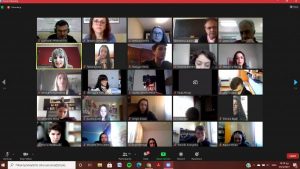
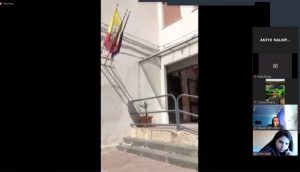
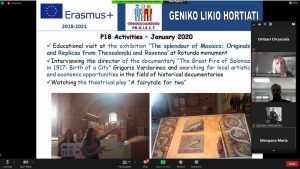
The activities continued the next day with a virtual trip to Mount Etna and the city of Taormina, with a virtual tour of the city of Leonforte and the Liardo Museum. The last activity was a group one, in which the students were divided into mixed groups, consisting of students from the three schools. On this occasion, the students identified common words used in the three languages.
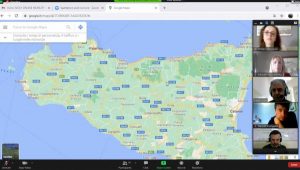
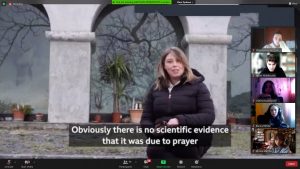
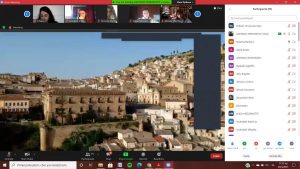
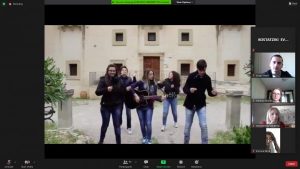
On the last day, after a virtual trip to Villa Romana del Casale in Piazza Armerina – Aidone, a Unesco World Heritage site with famous mosaics, students learned important information about how the feast of St. Joseph is celebrated locally and how important it is for the local economy of Leonforte. At the end of the program, the students from Romania and Greece were taught by their classmates in Italy, in a group activity, specific Sicilian songs.
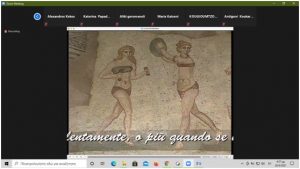
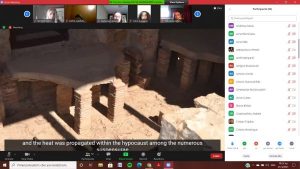
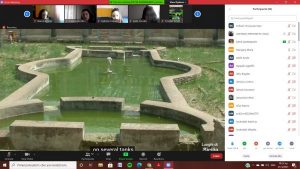
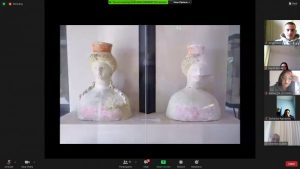
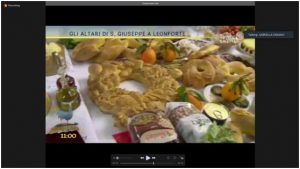
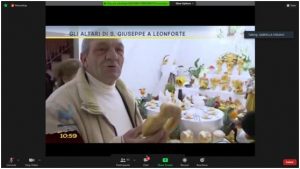
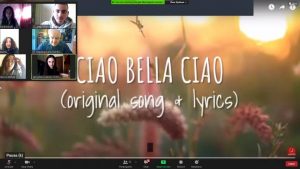
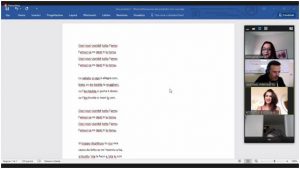
The activities aimed at acquiring knowledge about the local Italian cultural heritage and the celebration of St. Joseph, in order to identify similarities and differences with the heritage of other partners. These activities helped them understand the importance of conserving cultural resources in all aspects; develop communication and language skills; the ability to recognize and value of European and local cultural resources and the self-confidence and self-esteem, recognition and appreciation of the cultural values that define the identity of each nation.
At the end of the activities, all the students and teachers received satisfaction surveys.



